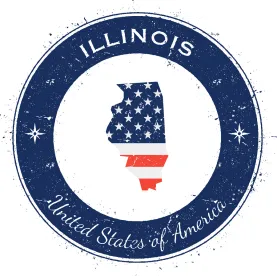On August 13, 2021, Governor Pritzker signed into law a bill amending the Illinois Freedom to Work Act governing restrictive covenants and non-competition agreements. On May 30, 2021, the Illinois General Assembly passed a bill codifying existing noncompete law in some respects and modifying it in others. We detailed the Bill in a prior blog here. The Bill is now the law. The amendments become effective on January 1, 2022 and will not apply retroactively.
The Bill prohibits non-competition agreements with employees earning $75,000 or less and non-solicitation covenants with employees earning $45,000 or less. These annualized earning thresholds increase periodically beginning in 2027. In addition, non-competition agreements and non-solicitation agreements will be deemed illegal and void unless the employer advises the employee in writing to consult with an attorney prior to signing the agreement and further provides the employee with at least 14 calendar days to review the agreement.
With these new considerations, the Bill also codifies certain aspects of Illinois common law. First, it adopts the legitimate business interest rule delineated by the Illinois Supreme Court in Reliable Fire v. Arredondo, 965 N.E.2d 393 (Ill. 2011). This rule requires courts to assess the “totality of the facts and circumstances of the individual case” when determining whether a restrictive covenant is necessary to protect a legitimate business interest. Second, it adopts the “two year” Fifield consideration rule, first established in Fifield v. Premier Dealer Services, Inc., 933 N.E.2d 938 (Ill. App. Ct. 2013). To constitute sufficient consideration for restrictive covenants under Fifield, continued employment must last at least two years. Under the Bill, the “adequate consideration” requirement is met if: (1) the employee worked for the employer for two years after signing the non-compete or non-solicit agreement; or (2) the employer otherwise provided adequate consideration to support a non-compete or non-solicit, such as “a period of employment plus additional professional or financial benefits or merely professional or financial benefits adequate by themselves.” The Bill does not provide guidance as to either of these “benefits” prongs. Third, the Bill provides courts with the discretion to “blue pencil” restrictive covenants. This discretion gives courts the opportunity to reform or sever provisions of an agreement rather than hold the whole agreement unenforceable. The Bill also carves “sale of business” non-competes from its coverage.
Noncompliance with these new laws will be costly to employers. The Bill creates mandatory attorneys’ fees rights for an employee who prevails against an employer who unsuccessfully attempts to enforce noncompliant non-compete or non-solicit agreements. The Bill further authorizes the Illinois Attorney General to investigate any instances of a “pattern and practice” prohibited by the Bill. The Illinois Attorney General may impose a civil penalty of $5,000 per each violation or $10,000 for each repeat violation within a 5-year period.
Although the new law does not affect existing and executed restrictive covenant agreements, employers will want to examine their template agreements and, where appropriate, update to ensure compliance.




 />i
/>i
